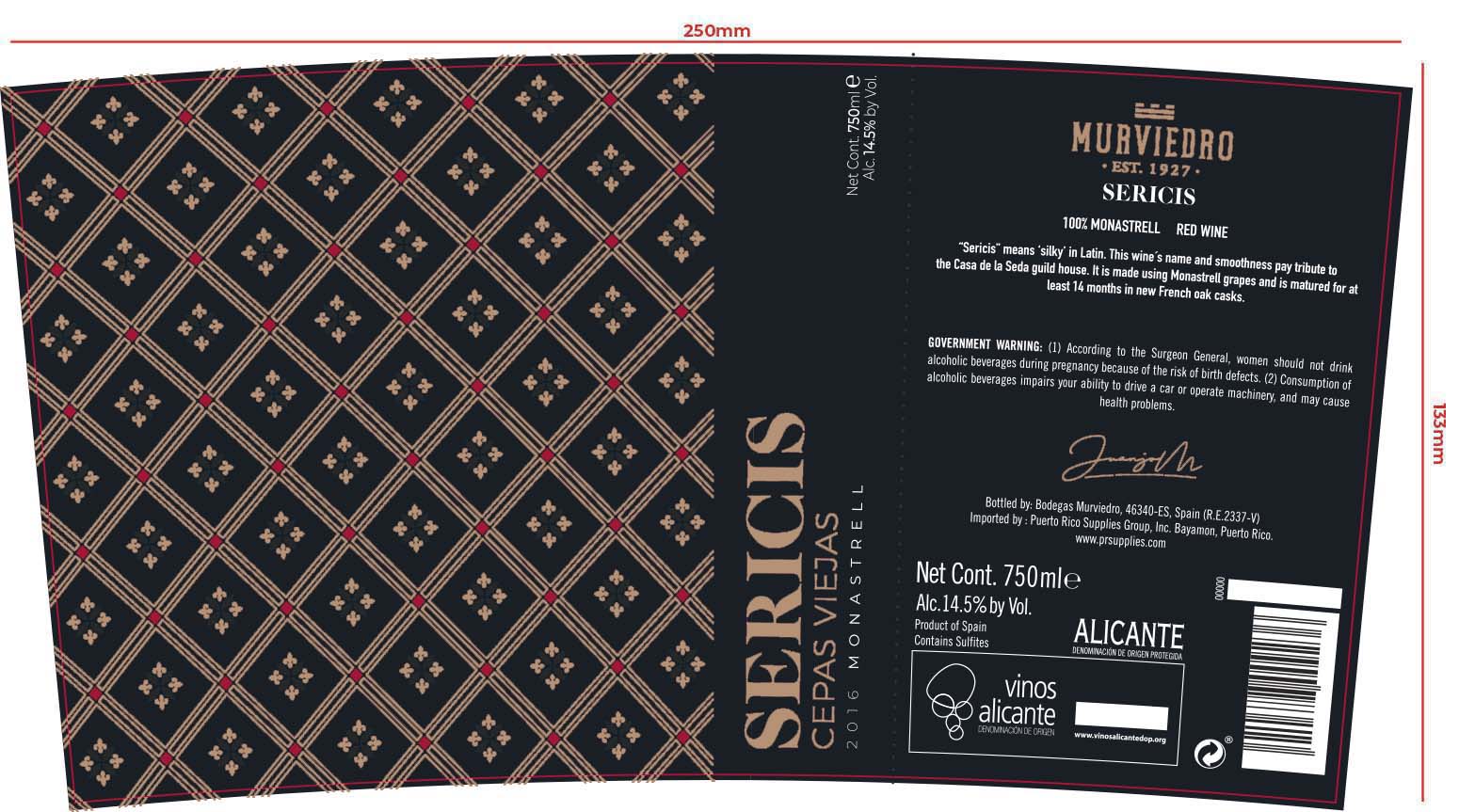Alicante Monastrell
Sericis Cepas Viejas is a distinguished red wine that beautifully showcases the essence of the Monastrell varietal from the sun-drenched Alicante region in Spain. This full-bodied gem offers a captivating array of deep, dark fruit aromas and flavors, reminiscent of ripe blackberries and rich plums, seamlessly intertwined with hints of tobacco and earthy undertones. The notable tannins add a firm structure to the wine, balanced out by a pronounced acidity that gives it an invigorating brightness. This Alicante treasure, crafted with grapes from old vines, is an outstanding testament to the potential of the region, boasting a complexity and depth that is often rewarded in prestigious wine competitions. Indulging in Sericis Cepas Viejas is nothing short of a delight, as it delivers a powerful yet elegant experience that wine enthusiasts will truly savor.
Sericis Cepas Viejas is a distinguished red wine that beautifully showcases the essence of the Monastrell varietal from the sun-drenched Alicante region in Spain. This full-bodied gem offers a captivating array of deep, dark fruit aromas and flavors, reminiscent of ripe blackberries and rich plums, seamlessly intertwined with hints of tobacco and earthy undertones. The notable tannins add a firm structure to the wine, balanced out by a pronounced acidity that gives it an invigorating brightness. This Alicante treasure, crafted with grapes from old vines, is an outstanding testament to the potential of the region, boasting a complexity and depth that is often rewarded in prestigious wine competitions. Indulging in Sericis Cepas Viejas is nothing short of a delight, as it delivers a powerful yet elegant experience that wine enthusiasts will truly savor.





